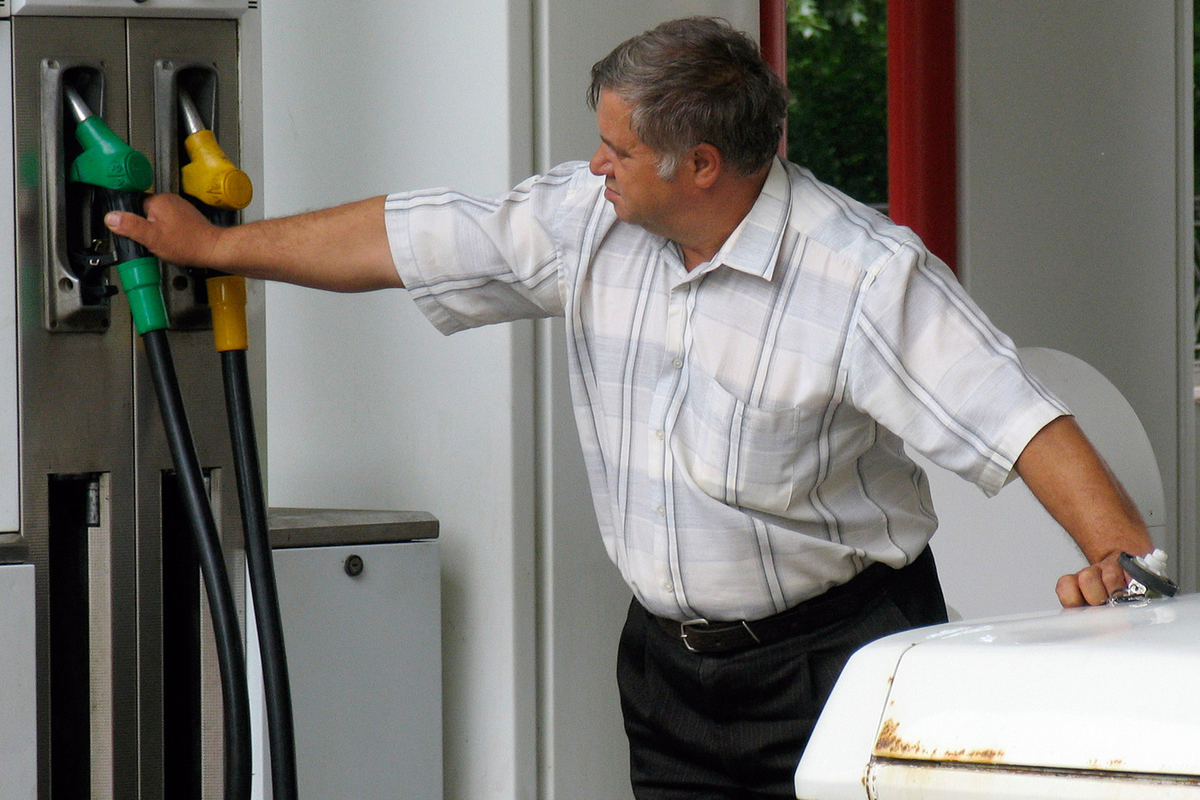Experts told how gasoline prices will change in Russia
[ad_1]

“It will rise in price, but not catastrophically”
The government has discussed a set of new measures to curb the cost of gasoline and diesel fuel during the high demand season, which begins in May. Judging by their content, the authorities want to put the situation on the fuel market into manual control mode. Thus, Deputy Prime Minister Alexander Novak recommended that producers “minimize vertically integrated oil companies’ purchase and sale of petroleum products directly from each other at exchange trading.”
As is clear from the minutes of the meeting of the headquarters on the situation in the fuel market, Alexander Novak instructed companies to maximize the supply of gasoline and diesel to the domestic market and to stock exchange trading. The Deputy Prime Minister also called on oil workers to “actively utilize those refinery capacities that are released as a result of the timely export of petroleum products.”
In turn, the FAS, the Ministry of Energy, the Federal Tax Service and the heads of regions will have to study the reasons for the rise in prices in the small wholesale segment above the inflation rate. Exchange traders were instructed, together with the antimonopoly service, to analyze the factors of rush demand at fuel trading and prepare proposals “to level out unjustified price increases and optimize trading.” The government also intends to determine the target price level for diesel for farmers, taking into account the dynamics during the spring sowing period 2021-2023 and inflation rates.
In general, there are a lot of plans, and all of them are due to the non-standard situation that has developed in the fuel market, and a complex of potential risks. Firstly, Russian refineries have recently been attacked by Ukrainian drones: in mid-March, Forbes counted at least 11 such incidents since the beginning of the year. According to estimates from energy trader Gunvor, production capacity worth 600 thousand barrels of petroleum products per day was disabled. Secondly, since the spring sowing campaign is now in full swing, farmers are hyperactively using diesel fuel. Thirdly, by the May holidays, demand for gasoline is expected to increase due to the opening of the summer season. Fourthly, a number of refineries have been shut down for scheduled maintenance, and accordingly, overall fuel output has been reduced. Under these conditions, will the authorities be able to prevent destabilization of the fuel market?
“Most likely, in the foreseeable future, an increase in prices at gas stations cannot be avoided,” says Alexander Shneiderman, head of the sales and customer support department at Alfa-Forex. – With a delay, but almost always, retail reacts to stock exchange quotes: fluctuations on stock exchanges are usually the most acute, and in retail prices are somewhat smoothed out. Thus, at the commodity exchange at the end of March, the cost of gasoline increased by 5-6 rubles, from 48 to 52-54 rubles per liter. The determining factor is seasonality: on the one hand, the situation is connected with sowing work, and on the other, with the beginning of the holiday season, that is, active domestic tourism, the turnover of which has been growing in recent years.” News about the progress of repairs at the refinery will also be important. According to the expert, the set of measures announced by Novak is aimed specifically at minimizing the increase in retail fuel prices.
“Of course, there are reasons for concern: since the beginning of the year, AI-92 and AI-95 gasoline, as well as summer diesel, have risen in price on the stock exchange by 8–23%. And after farmers began the spring sowing, diesel fuel consumption increased sharply, notes independent financial analyst Boris Usherovich. – Not all refineries are operating at full capacity – take the Nizhny Novgorod plant, which has not yet recovered. However, a six-month ban on gasoline exports came into force in March, which in theory should neutralize the effect of abrupt seasonal growth and maintain prices.”
Plus, it is indeed necessary to analyze the small wholesale market in order to identify unreasonable margins. All this will help minimize transactions between large domestic companies on the stock exchange, Usherovich believes. According to his forecast, the price tag at gas stations will increase, but only slightly – by a maximum of a ruble or two per liter.
“The government has plans to increase supplies of Belarusian gasoline to Russia,” says Igor Yushkov, an expert at the Financial University under the Government of the Russian Federation. – Since the two largest oil refineries in the neighboring country – Mozyr and Novopolotsk – are currently underutilized, they may well increase the volume of gasoline and diesel production for subsequent supplies to the Russian Federation. True, for us this will be a rather costly option due to increased budget costs. A much cheaper (but no less controversial) way is to reduce the requirements for the fuel itself, allowing gasoline of the Euro-3 environmental standard to be sold on the domestic market, instead of the current Euro-5. I think there are also unspoken agreements with vertically integrated oil companies so that they supply large volumes to the stock exchange and do not raise prices at their gas stations.”
As for the pace of restoration of damaged equipment at factories, according to the head of the Ministry of Energy Nikolai Shulginov, the department expects that all unscheduled repairs at refineries will be completed in April-May. If these deadlines are met, then there is no need to expect a price catastrophe on the fuel market – neither on the stock exchange, nor especially in retail, Yushkov sums up.
[ad_2]
Source link






